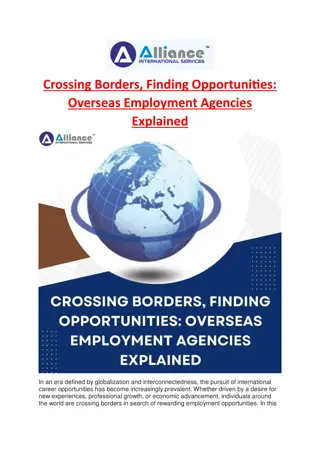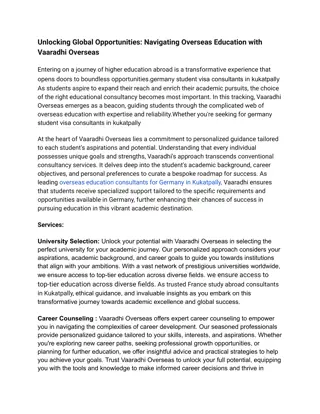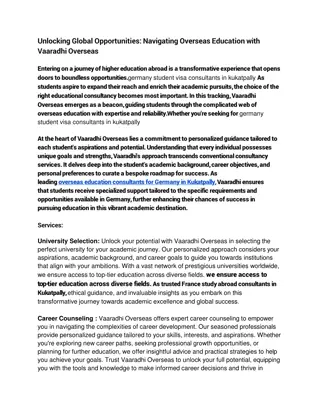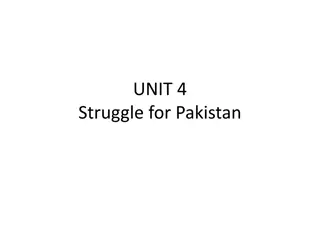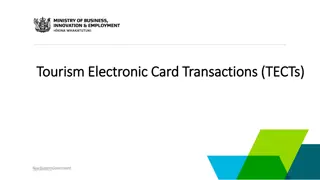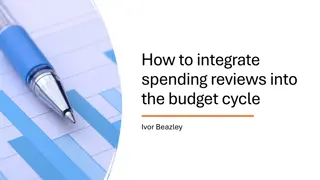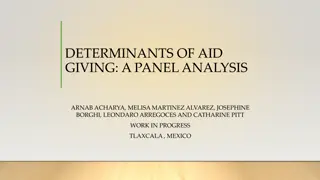Australian Government Overseas Aid Spending Controversy
The Australian Government's allocation of overseas aid funds for scholarships, including those granted to foreign politicians' children, has sparked controversy. This article explores the implications and concerns surrounding the distribution of these funds. It also delves into the challenges faced by Pacific Island students studying abroad and seeks to evaluate the effectiveness of the scholarship schemes in various countries.
Download Presentation

Please find below an Image/Link to download the presentation.
The content on the website is provided AS IS for your information and personal use only. It may not be sold, licensed, or shared on other websites without obtaining consent from the author.If you encounter any issues during the download, it is possible that the publisher has removed the file from their server.
You are allowed to download the files provided on this website for personal or commercial use, subject to the condition that they are used lawfully. All files are the property of their respective owners.
The content on the website is provided AS IS for your information and personal use only. It may not be sold, licensed, or shared on other websites without obtaining consent from the author.
E N D
Presentation Transcript
Opening Sentence.... The Australian Government spends millions of its overseas aid dollars on scholarships, some of which were handed to foreign politicians' children while others funded courses in design and photography . Canberra Times, Markus Mannheim, Public Sector Reporter 27 April 2011 Canberra Times, Markus Mannheim, Public Sector Reporter 27 April 2011
350 2009 2010 300 250 200 150 100 50 0 PNG Bangladesh Mongolia Pakistan Indonesia Vietnam Philippines Laos China Bhutan Cambodia
Students arrive in Australia under the Colombo Plan Training Scheme - 1964 Source: Australian News and Information Bureau
Why are our Pacific Island Students Failing?
Tonga Tracer Study, 1991 Indonesia Tracer Study (Degrees of Success) Daroesman, 1992 Western Samoa Tracer Study, 1992 Solomon Islands Tracer Study, 1993 Tuvalu Tracer Study, 1995 Laos Tracer Study, 1996 Philippines Tracer Study, 2000 Cannon Studies on Organisational Impact 1995 (IDP) & 1997 (ADB)
enhancing performance management of the ADS scheme, through the development of appropriate performance indicators results; appropriate performance indicators and more systematic reporting of performance ensuring appropriate attention to monitoring and addressing the level and impact of scholarship scheme losses and additional costs discontinuing their studies, not completing their studies within their award period, or not returning home; monitoring and addressing the level and impact of scholarship scheme losses and additional costs which result from students increasing the focus of ADS assistance to partner countries, through improved analysis of their human resource development needs and enhanced targeting of awards enhanced targeting of awards to help meet these identified needs
The New Indonesian Challenges and the ADS Scheme Evaluation Conference Jakarta 24th 25th July 2000 New design for ADS in Indonesia and the Philippines (embedding M&E, Key Agencies)
ADS II in Indonesia monitoring and Impact Evaluation) ADS II in Indonesia (Performance HRD Facility in Philippines Scorecard, KPIs and Tracer Study) HRD Facility in Philippines (Balanced ADS Vietnam 2002, 2005 and 2008) ADS Vietnam (Periodic Tracer Studies
AusAID scholarships provide rewarding higher education opportunities for people from developing countries to build skills and knowledge their home country and build enduring people to people linkages. to build skills and knowledge to promote development in their home country and build enduring people to people linkages. to promote development in AusAID AusAwards Factsheet (http://www.ausaid.gov.au/scholar/publications.cfm)
GOAL: To work in partnership with the GoI to achieve a prosperous, democratic and safe Indonesia through the provision of postgraduate scholarships OBJECTIVE: To enhance the pool of Indonesians with Australian postgraduate qualifications in order encourage positive relations with Australia and to strengthen the capability of Indonesian organisations to provide services. OUTCOME 1. Alumni apply knowledge and skills in their workplaces OUTCOME 2. Alumni effectively reintegrated into Key Agencies in order to strengthen agency service provision OUTCOME 3. Alumni initiate and/or support linkages between Indonesia and Australia OUTCOME 4. Alumni return with and maintain a positive perception of Australia Alumni Return to Indonesia with New Skills & Knowledge Support them to Maximise Educational Success Output 2: Place them in Good Quality Education Programs Output 1: Select Good People that match priorities
A total of five tracer studies, three independent completion reports and three joint reviews (with New Zealand) of scholarships programs were completed over 2009 and 2010. ~ Overview of Scholarships M&E embedded in larger programs 48% of scholarship programs have less than adequate M&E systems ~ Quality at Implementation (27 programs)
Taken together, these reviews provide significant insights into AusAID s tertiary training assistance, including what is working, what is not, and the reasons why .
Embedded M&E Systems based on Outcomes Early M&E Systems in Country Programs The Early Tracer Studies Colombo Plan PICs 1950 - 1980s 1990 - 1998 1999 - 2008 2009 - 2011 1989 Realisation that it would be nice to know more about academic achievement Process Driven. Desire to prove scholarship impact Desire for more Information about results Clearer explanation of intended program outcomes Education is Good
Inadequate data systems and corporate knowledge (SIMS-SIMON-OASIS) Program diversity and complexity not well handled sharing information, common approaches Poor knowledge management and transparency
Selection Placement Academic Success Return Re-employment Organisational Impact Institutional/ People to People Links Development Impact (portfolio approach)
Need for some standardisation of approaches across countries On-Return Surveys Longitudinal Studies Selected Case Studies (organisations, clusters, development issues)
Australia spends, on average, $105,000 educating each development scholar. Our aid budget is too precious, and too far below the Millennium Development Goals, to throw this amount at the wind and hope it lands in the right place. Canberra Times, Markus Mannheim, Public Sector Reporter 27 April 2011 Canberra Times, Markus Mannheim, Public Sector Reporter 27 April 2011






